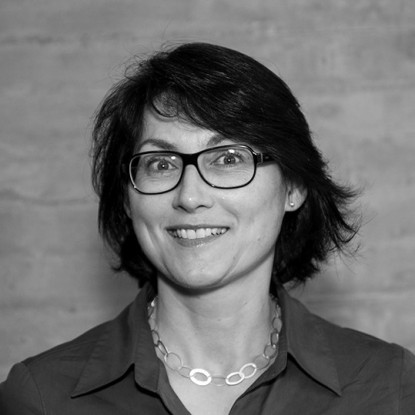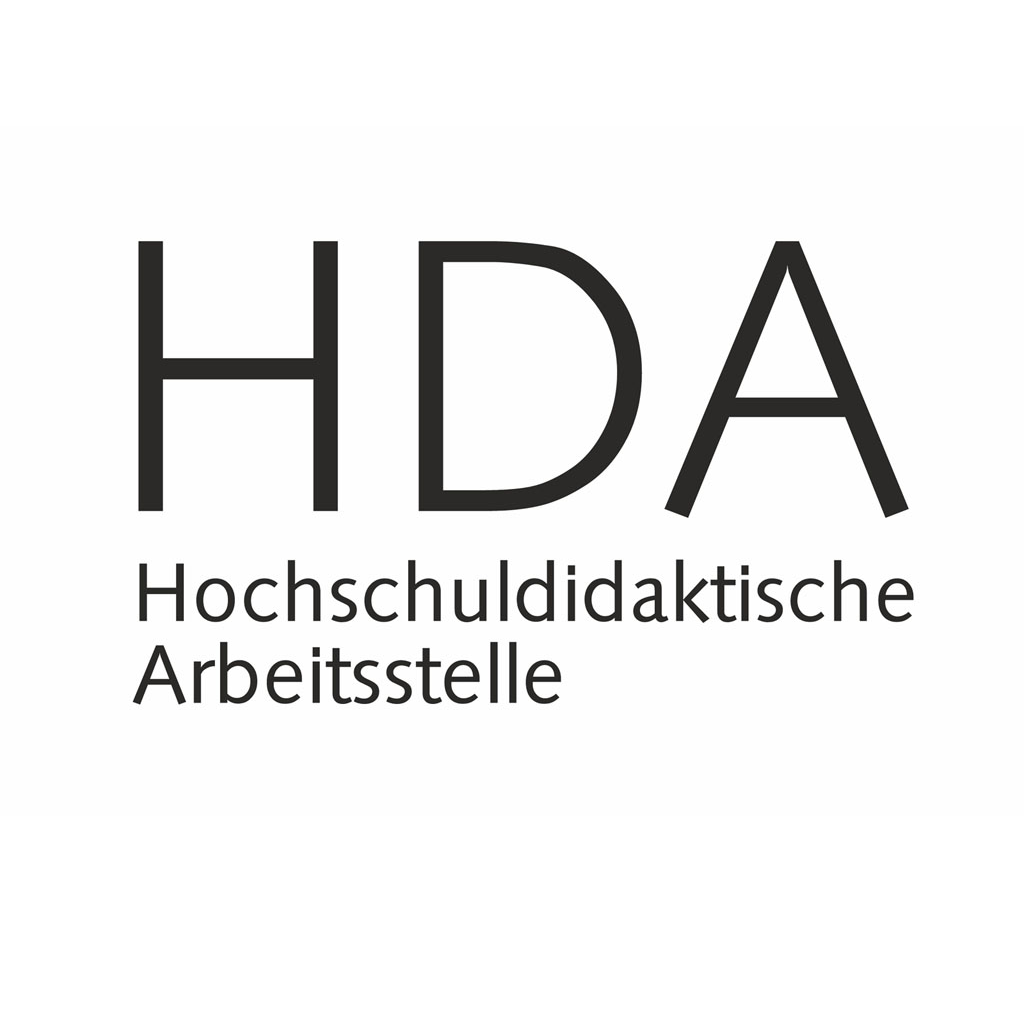The Center for Ecucational Development and Technologoy (HDA) supports project courses in two forms:
- didactic advice, support and qualification from the team Key Skills
- personnel funds from an internal grant fund for interdisciplinary project courses held in trust by the center.
Advice on the Fund for Project Courses
The support fund can be used to finance person-months for academic staff in interdisciplinary project courses. This is intended to give the staff of all participating departments the scope to prepare and supervise the project from a professional, didactic, organizational and technical point of view.
| Name | Working area(s) | Contact | |
|---|---|---|---|

Picture: HDA
| Dr. Andrea Dirsch-Weigand Deputy Director of the Center for Educational Development and Technology | Deputy Director of Center for Educational Development and Technology, Advisor on the funding fund for interdisciplinary study projects | andrea.dirsch-weigand@tu-... +49 6151 16-76650 S1|03 71 |
The project course are designed to allow students to simultaneously develop their own professional identity and practice cooperating with students from other subjects, languages and cultures. Therefore, the course concept follows well-proven principles
- Intertwined development of technical and key competencie
- Differentiated supervision of students
- Close cooperation between departments and experts from university didactics
Integrated development of technical and key competencies
In the interdisciplinary project courses, students of engineering sciences, natural sciences, social sciences and humanities work in project teams of about 10 persons on a challenging, unsolved and socially relevant task, which they can only solve if they distribute tasks and use different specialist competences and constructive teamwork. The students strengthen their competences for typical topics and working methods of their own subject and gain insight into other disciplines. At the same time, they become familiar with elementary project structures and build up methodological, digitalctivities. In international projects, they also train intercultural skills to a particular extent.
Continuous, differentiated and activating support for students
Students get continuous and activating support in technical problem solving, project organization, and teamwork and in the digital working environment. The support is provided by qualified student tutors and research assistants. The student tutors for organizational and technical support come from the departments, the facilitators for teamwork mostly come from the Center for Educational Development and Technology. In addition, experts and professors advise the students in consultation hours and expert interviews on their solutions. Students can find scientific literature or complementary self-study courses on Moodle. In digital project formats, they work with professional collaboration software.
Cooperative partnership
The participating faculties prepare the study project collaboratively. They design the interdisciplinary task in such a way that it requires contributions from all participating disciplines and collaboration across disciplinary boundaries. They ensure appropriate supervision of the students. It has proven successful that one faculty takes on the role of leader and coordinates the preparation and organization of the project course. The Center for Educational Development and Technology advises the working group on didactic and conceptual issues, prepares the tutors and facilitators for tthe respective project through short training sessions, and supervises the project with qualified team trainers and practical assistance for all tutors.
The beginnings of project studies at the TU Darmstadt
As early as the 1970s, employers, associations and unions demanded more practical experience and teamwork skills from university graduates. To this day, these requirements, together with independent work, a sense of responsibility and communication skills, as well as intercultural and interdisciplinary competence, play an important role in hiring, in addition to professional knowledge.
The TU Darmstadt responded to these demands by introducing project-based courses in all engineering degree programs.
In 2009, the TU Darmstadt formulated “practiced interdisciplinarity” as a profile feature of the university in its principles for study and teaching and recommended developing in particular interdisciplinary project courses with open tasks (Grundsätze für Studium und Lehre der Technischen Universität Darmstadt., 2009, Seite 5).
Development of interdisciplinary and international study projects in KI²VA
Consequently, in 2011, the university-wide introduction of interdisciplinary projects in the study entry phase became a focus of the teaching innovation project KI²VA (Kompetenzentwicklung durch Interdisziplinäre und Internationale Vernetzung von Anfang an), which was funded by the federal-state program Quality Pact for Teaching until 2020.
In a first step, starting in 2012, the disciplinary project coures in engineering were expanded in an interdisciplinary way. In a second step, new interdisciplinary study projects were introduced under the leadership of architecture, biology, and law and economics.
This was followed by the establishment of international study projects, which with INSPIRED 2020 also became part of the summer program of the European university alliance UNITE! (University Network for Innovation, Technology and Engineering).
In 2020, the final year of KI²VA, the interdisciplinary and international project courses were successfully transferred to a fully digital format, as only digital courses could be held at TU Darmstadt due to the Covid pandemic.
In total, 55 study projects with over 17,000 students and the participation of 18 departments and institutes took place in KI²VA from 2012 to 2020. The Center for Educational Development and Technology supported each KI²VA project with didactic advice, training sessions for the tutors and the deployment of team and project facilitators from the center during project weeks.
Continuation of interdisciplinary project courses
Since 2021, the interdisciplinary project courses at the TU Darmstadt have been supported by an internal fund and the didactical support of the Center for Educational Development and Technology even after the end of KI²VA.
Awards and prizes
In 2010, Marion Eger, Dr. Robin Kröger and Sabine Ngondi from the Center for Educational Development and Technology received the Athene Special Award for Interdisciplinary Teaching. The prize was awarded for their training of tutors and facilitators for projects in the introductory phase of studies.
In 2011 and 2016, the TU Darmstadt applied for funding from the federal-state program Qualitätspakt Lehre (Quality Pact for Teaching) for the comprehensive introduction of interdisciplinary study entry projects in KI²VA.
In 2013, Prof. Dr.-Ing. Manfred Hampe, scientific director of the focus on study projects in KI²VA, was awarded the Ars legendi Prize by the Stifterverband and the German Rectors' Conference for the development of the interdisciplinary project course for first-year students in mechanical engineering.
2021 Prof. Alexander Löwer, Prof. Reinhold Bertrand, Prof. Clemens Müller, Dr. Agata Staniek, Maik Mendler, Martin Michel, Dr. Enrico Bruder, Anna Honnef and Marianne Herzberger-Nickibauer were awarded the Athene Special Prize for Interdisciplinary Teaching for the INSPIRED project.
Online materials
Dirsch-Weigand, A. & Herzberger-Nikibauer, M. (2019). Interdisziplinäre Studienprojekte. Beitrag zum Didaktikportal einfachlehren der TU Darmstadt.
Dirsch-Weigand, A. & Herzberger-Nikibauer, M. (2019). Studienprojekte gestalten. Beitrag zum Didaktikportal einfachlehren der TU Darmstadt.
Dirsch-Weigand, A. & Hampe, M. (2018). Interdisziplinäre Studienprojekte gestalten. Aus der Praxis für die Praxis. Bielefeld: W. Bertelsmann Verlag.
Publications in chronological order
2019
Dirsch-Weigand, A. & Herzberger-Nikibauer, M. (2019). Interdisziplinäre Studienprojekte. Beitrag zum Didaktikportal einfachlehren der TU Darmstadt.
Dirsch-Weigand, A. & Herzberger-Nikibauer, M. (2019). Studienprojekte gestalten. Beitrag zum Didaktikportal einfachlehren der TU Darmstadt.
2018
Awolin, M. (2018). Lernprozessbegleitung in interdisziplinären Studieneingangsprojekten. Evidenzbasierte Optimierung eines team- und fachtutoriellen Begleitmodells. Dissertation der Technischen Universität Darmstadt. Darmstadt: TUprints.
Dirsch-Weigand, A. & Hampe, M. (2018). Interdisziplinäre Studienprojekte gestalten. Aus der Praxis für die Praxis. Bielefeld: W. Bertelsmann Verlag. Download
Dirsch-Weigand, A., Bandmann, V. & Warzecha, H. (2018). Von KI2VA zu iGEM – Mit interdisziplinären Studienprojekten vom forschungsorientierten zum forschenden Lernen. In: Neuber, N., Paravicini, W. & Stein, M. (Hrsg.). Forschendes Lernen. The Wider View. Eine Tagung des Zentrums für Lehrerbildung der Westfälischen Wilhelms-Universität Münster vom 25. bis 27.09.2017. In: Schriften zur Allgemeinen Hochschuldidaktik. Band 3. Münster: WTM-Verlag, S. 331-334.
Dirsch-Weigand, A., Pinkelman, R., Wehner, F. D., Vogt, J. & Hampe, M. (2018). Picking Low Hanging Fruits – Integrating Multidisciplinary Learning in Traditional Engineering Curricula by Interdisciplinary Project Courses. In: Auer, M. & Sun Kim, K. (Ed.). Engineering Education for a Smart Society. World Engineering Education Forum & Global Engineering Deans Council 2016. Heidelberg: Springer. DOI 978-3-319-60937-9_8.
2017
Dirsch-Weigand, A., Awolin, M., Eger, M., Pinkelman, R. & Hampe, M. (2017). It Takes More than One but a Village: Learning Support for First Year Students in Interdisciplinary Study Projects. (opens in new tab) In: Guerra, A., Kolmos, A., Rodriguez, F. J., Reyes, I. P. (Ed.): PBL, Social Progress and Sustainability. Proceedings of the 6th International Research Symposium on Problem-Based Learning – 2017 July 3-5, Bogota, Colombia, Alborg: Aalborg Universitetsforlag, S. 454-469.
Koch, F. D., Dirsch-Weigand, A., Awolin, M., Pinkelman, R. J. & Hampe, M. J. (2017). Motivating First Year University Students by Interdisciplinary Study Projects. European Journal of Engineering Education. 42/2017, Issue 1, 17-31.
Pinkelman, R. J., Awolin, M., Walter, S., Nasajargal, B., Norovryenchin, O., Nergui, U. & Hampe, M. J. (2017). Sustainable Transfer of a German PPBL Model to a Mongolian Environment: Intercultural Experiences, Reflections and Recommendations. (opens in new tab) In: Full Papers of 45th SEFI Conference, September 18-21, Azores, Portugal.
2015
Christ, B., Genz, M., Kawohl, A., Linke, H., Motzko, C., Schebek, L. & Schumann, J. (2014/15). Interdisziplinäres Projektplanspiel „Grundlagen des Planens, Entwerfens und Konstruierens“ an der TU Darmstadt. Bauingenieur, 2014/2015, 21-28.
Dirsch-Weigand, A., Koch, F. D., Pinkelman, R., Awolin, M., Vogt, J. & Hampe, M. J. (2015). Looking Beyond One's Own Nose Right from the Start: Interdisciplinary Study Projects for First Year Engineering Students. In: Proceedings of 2015 International Conference on Interactive Collaborative Learning (ICL), September 20-24, 2015, Florence, Italy.
Koch, F.D. & Vogt, J. (2015). Psychology in an Interdisciplinary Setting: A Large-Scale Project to Improve University Teaching. Psychology Learning & Teaching, 14/2015, Issue 2, 158-168.
Pinkelman, R., Awolin, M. & Hampe, M. J. (2015). Adaption and evolution of a first year design project week course – From Germany to the United States to Mongolia. (opens in new tab) In: Proceedings of the 122nd ASEE Annual Conference & Exposition 2015, June 14-17, 2015, Seattle, USA. Download (15.01.2021)
2011
Eger, M. (2011). Auf dem Weg: Studienreformprozesse am Beispiel der Kompetenzentwicklung durch Studienprojekte. In: Eger, M., Gondani, B. & Kröger, R. (Hrsg). Verantwortungsvolle Hochschuldidaktik, Gesellschaftliche Herausforderungen, Nachhaltigkeitsanspruch und universitärer Alltag. Berlin 2011, 163 -182.
2007
Möller-Holtkamp, S. (2007). Fachintegrierte Förderung von Teamkompetenz. Evaluationsstudie über eine Projektveranstaltung zu Studienbeginn im Fachbereich Maschinenbau an der Technischen Universität Darmstadt“. Berlin: Logos.
2001
Hampe, M. (2001). Einführung in den Maschinenbau. Ein Projekt für Erstsemester. In: Görtz, W. (Hrsg.). Projektveranstaltungen im Studium an der Technischen Universität Darmstadt. Bestandsaufnahme 2001. Darmstadt: Präsident der Technischen Universität Darmstadt. TU Darmstadt: Schriftenreihe Wissenschaft und Technik, Band 82, 107-123.






